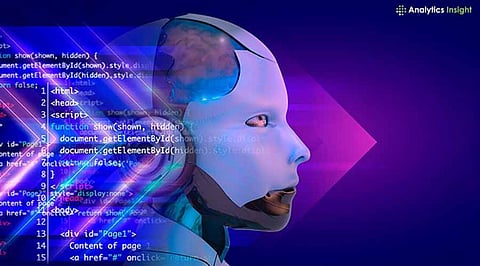

AI is shaping the software industry with Satya Nadella revealing 30% of codes at Microsoft are generated by AI, with human engineers reviewing them.
Artificial intelligence is no more a futuristic concept. Instead, it is now the most prominent present-day reality that has been reshaping industries worldwide. While almost every sector gets the impact of AI integration, the most significant transformations have occurred in the sector of software development.
Every other tech behemoth, including Microsoft, Meta, etc., has accepted the AI-written code. Interestingly, Microsoft has even accepted the change and stated 30% of the codes in the company are written and reviewed by AI. This development highlights the growing capabilities of AI and how it is changing the traditional coding landscape.
AI’s rapid progress is evident, but Microsoft CEO Satya Nadella has revealed how Microsoft has been adapting to this trend in its daily office work. In his interview at Meta's LlamaCon AI developer event, he spoke openly about this change at Microsoft.
Meta’s first-ever LlamaCon AI developer conference was organized in Menlo Park, California, on April 29. At that event, the Microsoft CEO sat down for a chat with Meta CEO Mark Zuckerberg. During this conversation, Nadella revealed that AI is responsible for generating between 20% and 30% of the code in some of Microsoft's projects.
His statement reads, “I’d say maybe 20%, 30% of the code that is inside of our repos today and some of our projects are probably all written by software.” Further, he mentioned AI generates Python codes pretty well, though its C++ abilities are "not that great."
Moreover, this conversation unveiled that this integration at Microsoft isn’t limited to code generation. AI tools even review codes, which indicates a much more significant adoption of AI throughout the software development lifecycle.
Microsoft’s Chief Technology Officer, Kevin Scott, is more hopeful about the AI-generated coding trend. As per his prediction, by 2030, around 95% of code will be AI-generated. So, per him, it will allow human engineers to focus more on high-level design and strategic decision-making. This highlights a significant shift in the role of software engineers, from writing code line by line to supervising and guiding AI-driven development processes.
The company’s financial success further highlights the importance of this integration. Microsoft reported US$70.07 billion in revenue and US$3.46 billion in earnings per share. This success is the consequence of the company’s trust and investment in AI and cloud services.
Even Microsoft has invested in OpenAI and the expansion of Microsoft Azure. As per the current reports, this second platform has witnessed a 33% year-over-year revenue growth, which prominently shows the increasing demand for AI and cloud-based solutions.
It’s not only Microsoft, but almost every other tech company has accepted AI-generated codes. Google CEO Sundar Pichai also announced that over 30% of new code at Google is now AI-generated. Even Mark Zuckerberg has anticipated that AI could handle half of their Llama model development within a year.
These above examples prominently highlight a substantial shift in how software is developed, with AI being the central character. However, this increasing AI integration is imparting workforce dynamics. Engineering jobs in many sectors are currently reduced due to the enhanced use of AI in development.
Companies are even laying off engineers, which reflects a new trend of companies reevaluating their staff requirements in light of AI's capabilities. However, amidst this, Microsoft has taken a different standpoint and highlights the importance of human oversight in AI-driven development.
The rapid integration of AI into the coding process at Microsoft and other big tech companies like Google and Meta marks a significant milestone in the evolution of software development. Because now, AI is writing code, that's the traditional role of an engineer, so the role of human engineers is undergoing substantial transformation. The more artificial intelligence advances, the more it will be able to handle more complex aspects of coding without errors.
Anyway, this shift is not entirely good. It presents both opportunities and challenges. On one hand, it enhances productivity, but on the other, it generates the importance of a reevaluation of workforce structures. The more the AI evolves, the more it will highlight the necessity of human-AI collaboration to shape up the future.
